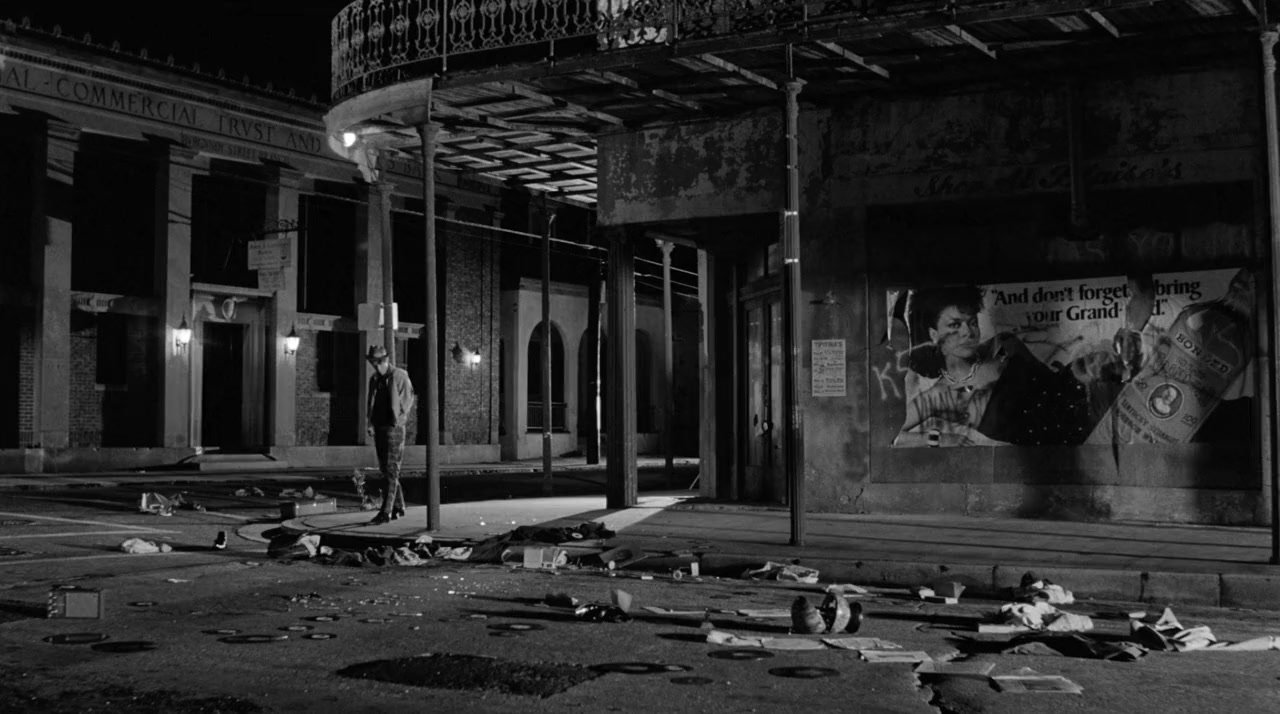2012 Tarkovsky Prize 3rd Place: Midori Chen
DOWN BY LAW
By Midori Chen
Machismo plays a heavy part in American culture, the image of “The True Man” being a gruff, detached “cool” guy. Those who conform to this archetype are careless with their loved ones, writing off all consequences with a “Whatever, man.” They are players who cannot settle into a stable relationship, refusing to talk about emotionally-charged topics, even degenerating to groundless accusations and irrational mockery. Jim Jarmusch’s Down By Law observes the outcome of those who surrender themselves to this ideal, as three men’s jailbreak lead their lives in different directions– or rather, in the directions they were each intended towards in the first place.
The “cool guy” personas are played by Jack, a disc jockey, and Zack, a pimp. They are both set up for the crimes that land them in the same New Orleans jail cell. They cannot stand each other; their alpha male personalities clash in the confined space as they each try to out perform the other. The only time they get along is when a new guy is tossed in their cell—an Italian named Bob—who is so utterly awkward and “uncool” that he provides Jack and Zach with something in common: how much he annoys them. Since exasperation is one of the few emotions “cool guys” can show, the two do so in abundance. However, Bob’s status rises when he gives Jack and Zach information on how to escape, and the three do, temporarily overjoyed in freedom and take the time to simply bask in their camaraderie. The thought of freedom releases Jack and Zach from their self-imposed prison of solitude and dispassion, as the three skip down a dank sewer, hooting and hollering together in glee. This is the only moment in which the two actually escape both the literal and figurative jail.
Once outside discord is quick to rise. It isn’t long before Jack and Zach are storming away from each other and leaving Bob behind to woefully recall his family, without shame, as Jack and Zach grumble in-macho-persona about the unfair circumstances of their arrest and each other’s idiocy. Once they become cold and starved, Jack and Zach are quick to return, waddling back to Bob’s warm fire, where they thaw under Bob’s improvised meal and affability.
The movie comes to a climax as Bob finds true love in a stranger: an Italian woman living alone in the Louisiana bayou. As Bob is unafraid to express his true sentiments, the woman instantly warms to him, leaving Jack and Zach, literally, outside in the cold waiting for Bob to rob the house of its food (as per the tradition of manly men). The woman’s hospitality allows the two men in for a glimpse at the new lovers’ open vulnerability with each other, as demonstrated in Bob and the woman’s slow dance, jolting and unrehearsed yet relentless, because they are willing to try for each other.
Jack and Zach, the apparent main characters, are now cast to the unfocused sidelines, crippled by their incapability to break out of their personas. As Jack and Zach take their leave in the final scene of the movie, they engage in a brief, teasing goodbye with each other, allowing no room for sentimentality or further investment in their characters beyond amusement and pity. They leave in opposite directions down plain dirt roads, backs to each other, backs to the warm house and genuine life Bob is building for himself. It leaves the audience sighing in exasperation, shaking their heads as they wonder, when will these boys grow up?



